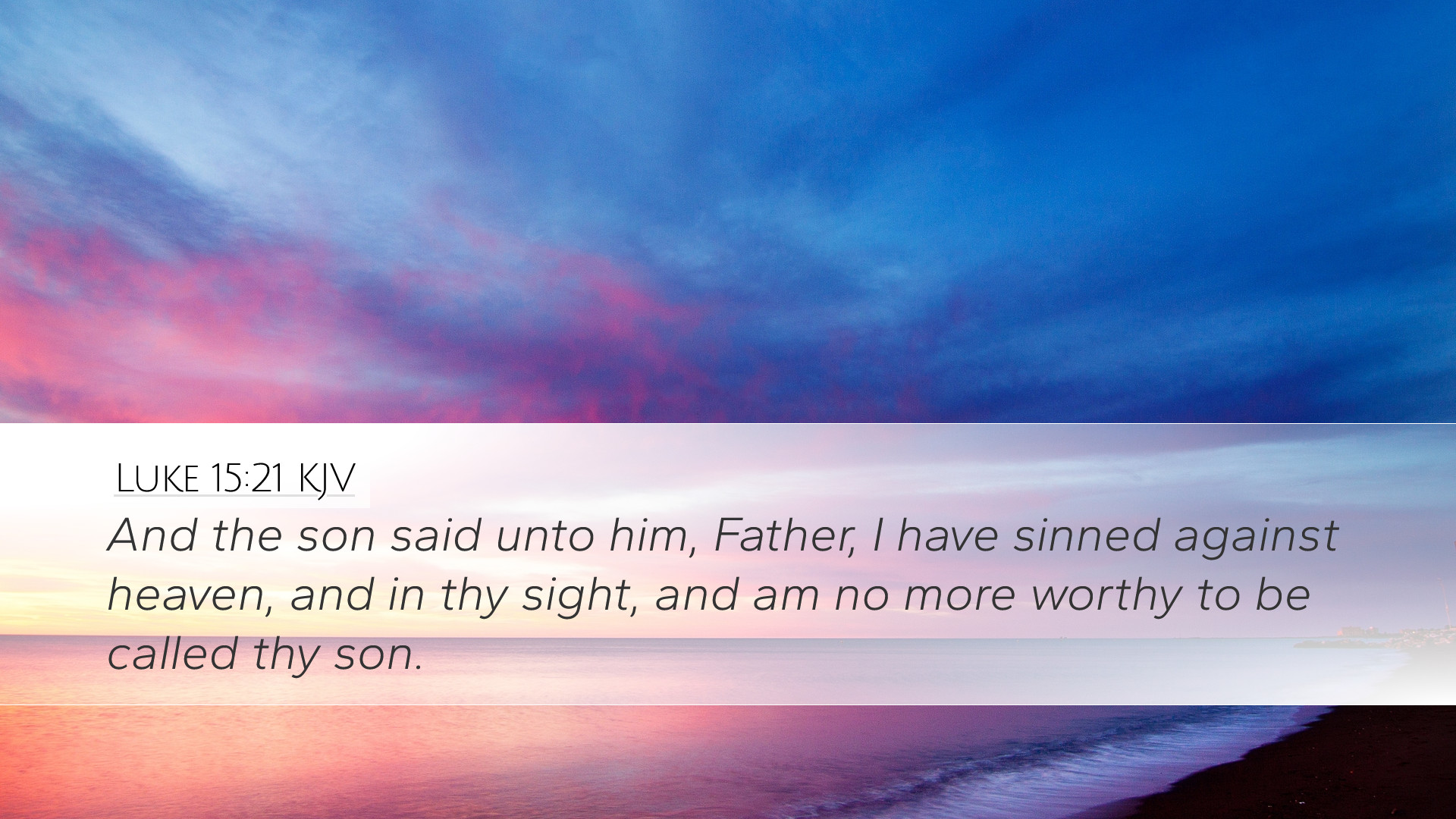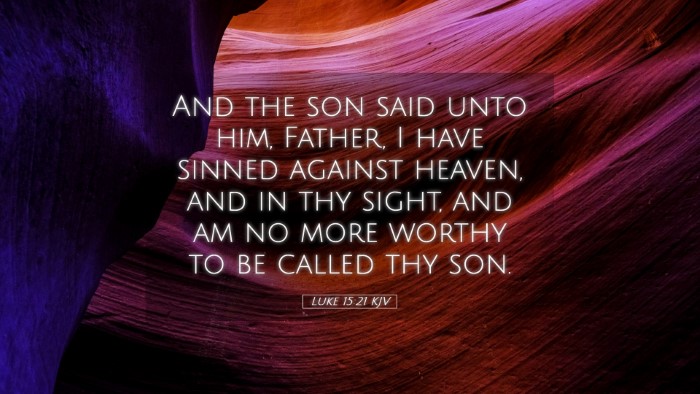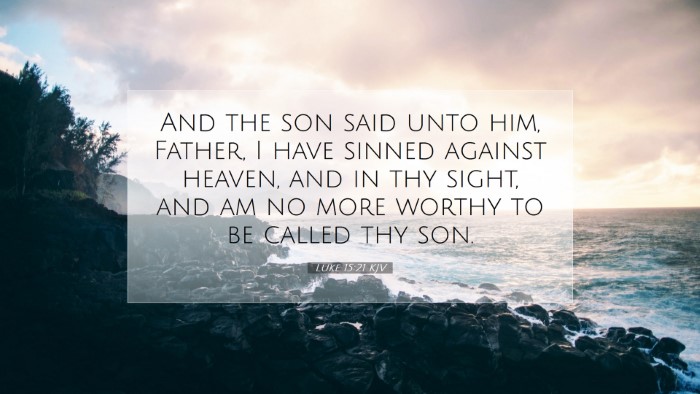Commentary on Luke 15:21
The verse Luke 15:21 states: "And the son said unto him, Father, I have sinned against heaven, and in thy sight, and am no more worthy to be called thy son." This poignant moment occurs within the parable of the Prodigal Son, which is a profound illustration of grace, repentance, and restoration. The insights drawn from various public domain commentaries provide a rich tapestry of meaning intended for pastors, students, theologians, and Bible scholars.
Contextual Background
This verse is situated within one of the most cherished parables Jesus told, which can be found in Luke 15:11-32. The narrative chronicles the journey of a young man who squanders his inheritance in a far land and eventually returns home in disgrace. The context underscores the themes of sin, repentance, and reconciliation, making it critically significant for understanding God’s redemptive nature.
Analysis of the Son’s Confession
The confession of the Prodigal Son is pivotal in grasping the essence of repentance. It is marked by three key phrases that convey profound theological truths and personal reflections.
- Recognition of Sin: The phrase "I have sinned" indicates a deep awareness of moral failure. Matthew Henry remarks on the importance of recognizing one's sins as the first step toward true repentance. Henry suggests that genuine repentance begins with acknowledging our transgressions, reflecting a humble spirit.
- Sins Against Heaven: The son’s admission of sin "against heaven" indicates that his wrongdoing is not only against his father but also against God. Albert Barnes emphasizes that this acknowledgment signifies an understanding of the divine nature of sin, aligning with theological views that sin is ultimately an affront to God’s holiness.
- Loss of Worthiness: The expression "I am no more worthy to be called thy son" reveals the despair of the son. Adam Clarke highlights the depth of his feelings of unworthiness, arguing that it illustrates the heavy burden of guilt and the need for grace. The son's self-assessment, rather than diminishing his value, ironically sets the stage for the father’s unconditional love.
Theological Implications
The theological layers within this verse reflect God's nature and the implications of our human experience with sin and redemption. Each commentary highlights several crucial points regarding the divine character and human condition.
- God’s Readiness to Forgive: Through the father’s response to the son’s confession, believers recognize the overwhelming grace and mercy of God. Henry articulates that the father’s willingness to forgive reflects God’s nature, suggesting that it is not too late for anyone to return, no matter the depth of their sin.
- The Nature of True Repentance: This moment encapsulates the essence of repentance. It is not merely verbal admission but a heartfelt gesture of returning to the Father. Barnes underscores that true repentance involves a contrite heart and a desire to forsake sin and seek restoration.
- Position and Identity: The son’s statement about worthiness speaks to identity in Christ. Clarke clarifies that while humans might feel unworthy, God’s familial love transcends human failings, reinstating us into our rightful identity as children of God when we repent.
Application for Believers
The insights from this verse and its surrounding context provide numerous applications for the lives of believers. Pastors and spiritual leaders can draw upon these truths to encourage congregants in their struggles with guilt and shame.
- Encouragement in Repentance: Believers are urged to approach God with honesty about their sin, much like the Prodigal Son. This confession can lead to revitalization in one’s spiritual journey, leading to healing and restoration.
- Hope for the Lost: The story offers profound hope that no one is beyond the reach of God's grace. It is a reminder to those struggling with addiction or moral failures that repentance leads to redemption.
- Teaching About Grace: Pastors can utilize this passage to expound on divine grace's sufficiency. The heart of the Gospel message is encapsulated in the father’s embrace of the wayward son, illustrating how God generously bestows grace despite our unworthiness.
Conclusion
Luke 15:21 encapsulates the profundity of repentance and the character of God. The layers of meaning drawn from Matthew Henry, Albert Barnes, and Adam Clarke enrich the understanding of the verse for pastors, students, theologians, and scholars. The acknowledgment of sin, the understanding of our unworthiness, and the recognition of God's incredible grace combine to offer a compelling narrative of hope and restoration for all believers. Thus, the parable serves as a timeless reminder that through sincere confession and repentance, restoration into the embrace of the Father is always available.


